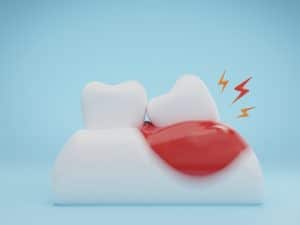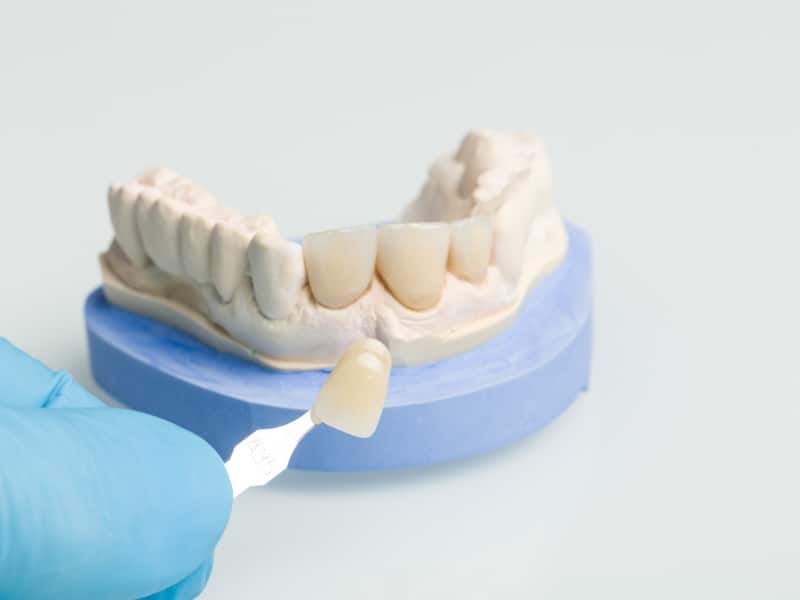Delaying the placement of a tooth crown may seem like a minor decision. Still, it can lead to significant dental issues down the line. A tooth crown is essential in restoring and protecting a weakened or damaged tooth. If you are postponing this procedure, it’s essential to understand the delay tooth crown risks involved. This article will explore what could happen if you delay getting a tooth crown and how it can affect your dental health.
Why is it important to get a tooth crown on time?
Getting a tooth crown promptly ensures that your tooth remains protected and functional. When a tooth is weakened due to decay, cracks, or wear, a crown can restore its strength and prevent further damage. However, delay tooth crown risks can lead to further complications, making timely treatment crucial for maintaining your dental health.
Key reasons to get a tooth crown without delay:
- Prevents further damage: A crown supports a weakened tooth, preventing additional cracks or fractures.
- Restores functionality: It helps you maintain normal biting and chewing function.
- Avoids pain: If left untreated, a damaged tooth may cause pain or sensitivity when eating or drinking.
- Protects against decay: A crown seals the tooth, protecting it from bacteria and further decay.
- Improves aesthetics: A crown can restore the appearance of a damaged tooth, ensuring your smile looks natural.
Getting a crown on time will save you from potentially expensive treatments and preserve your tooth’s health.
Can delaying a tooth crown cause further tooth damage?
Delaying a dental crown procedure can lead to various complications, affecting the tooth’s health and requiring more extensive treatments. The table below outlines the potential risks of postponing a crown placement.
Effects of delayed treatment:
| Risk | Impact |
| Increased decay | Tooth becomes more vulnerable to bacterial infections, worsening decay. |
| Cracking or fracturing | Weakened tooth may break or chip under pressure, requiring complex treatments. |
| Deteriorating tooth structure | The tooth structure degrades, leaving less healthy tissue for future treatments. |
| More extensive procedures | Delayed crowns may require root canals or even tooth extraction. |
| Longer recovery time | Increased damage results in longer and more complicated recovery. |
The longer you wait, the greater the risk of needing more invasive treatments, which could be more time-consuming and costly, as well as reducing the possibility of repairing a damaged dental crown.
What happens if you delay getting a tooth crown?
You leave the affected tooth unprotected when you delay getting a tooth crown, which delays tooth crown risks to the tooth’s integrity. Without the crown, it may continue to weaken or even develop new issues that could have been avoided with timely intervention.
Possible outcomes of delaying a crown:
- Progressive tooth damage: The damage to the tooth will likely worsen over time, potentially resulting in complete tooth loss.
- Increased sensitivity: A compromised tooth can become increasingly sensitive to temperature changes and pressure, causing discomfort.
- Complicated procedures: A simple crown placement may become more complex if the tooth deteriorates.
- Higher cost: As the damage progresses, you may need more expensive dental treatments, such as root canal therapy or implants.
- Chronic pain: Delaying treatment might lead to a constant ache or sharp pain, making everyday tasks such as eating or drinking unpleasant.
A tooth crown can help you avoid these complications, ensuring your tooth is adequately protected and functional.
Could waiting too long to get a crown lead to infection?
Waiting too long to get a tooth crown can indeed lead to infections. When a tooth is cracked or decayed, bacteria can enter and cause an infection in the underlying pulp, which can spread if not addressed.
Infection risks from delaying a crown:
- Root infection: The exposed tooth pulp can become infected, leading to a painful abscess.
- Gum disease: Bacteria may also spread to the gums, leading to gingivitis or periodontitis.

- Systemic infections: In severe cases, untreated infections can spread to other body areas, affecting overall health.
- Increased discomfort: Infected teeth are often painful and sensitive, making eating or drinking normally difficult.
- Longer healing times: If an infection occurs, the treatment becomes more involved and may take longer to recover from.
Getting a crown on time helps seal the tooth, protecting it from bacteria and infections.
How does a delayed tooth crown impact your smile?
A delayed tooth crown can significantly affect your smile in various ways. Here’s a summary of the key impacts on your dental health and appearance.
Impact on appearance:
| Impact | Description |
| Visible damage | A damaged tooth becomes more noticeable, especially in the front. |
| Discolouration | Cracks or decay may cause the tooth to darken, affecting your smile. |
| Irregular bite | A compromised tooth can misalign surrounding teeth, affecting your bite. |
| Tooth loss | Untreated damage may lead to tooth loss, creating gaps in your smile. |
| Lack of confidence | A damaged tooth can make you feel self-conscious and reduce your social confidence. |
A tooth crown restores the tooth’s functionality and natural look, helping to keep your smile vibrant and confident.
Could delaying a crown lead to more severe dental issues?
Yes, delaying the placement of a crown can lead to more severe dental issues. When left untreated, the damage to the tooth can worsen, and the complications can become more extensive and challenging to treat.
Long-term effects of delaying a crown:
- Tooth loss: The tooth may become so damaged that it can no longer be saved and must be extracted.
- Bite problems: A weakened tooth may affect how your bite functions, leading to discomfort and uneven wear on other teeth.
- Jaw issues: Missing or damaged teeth can stress the jaw, leading to problems with the temporomandibular joint (TMJ).
- Higher treatment costs: More severe issues often require more expensive treatments, such as implants or complete mouth restoration.
- Chronic pain: Delaying treatment could result in ongoing pain, making everyday activities challenging.
By addressing the issue with a crown early, you can prevent these serious dental issues and keep your oral health in top condition.
What role does a tooth crown play in preventing tooth loss?
A tooth crown is crucial in preserving a tooth’s longevity and preventing tooth loss. By providing stability and protection, a crown can extend the life of a compromised tooth.
How crowns prevent tooth loss:
- Strengthens the tooth: A crown reinforces a weak tooth, preventing it from fracturing or breaking.
- Protects the underlying structure: It shields the tooth from further decay or damage.
- Prevents additional complications: Proper protection minimizes the risk of infection or further damage.
- Maintaining bite functionality: A crown helps ensure the tooth continues functioning correctly, preventing surrounding teeth from shifting.
- Delays tooth extraction: Without a crown, the tooth may eventually need to be extracted, but timely treatment can extend its life.
Delaying getting a crown can weaken your tooth further and possibly cause it to fall out. Crowns are essential in maintaining the integrity of your smile and preventing tooth loss. Dental crown repair services can help restore your tooth’s functionality if damage occurs.
Don’t delay. Protect your smile!
Delaying a tooth crown can lead to dental problems, from increased damage and sensitivity to potential infections and tooth loss. Getting a crown as soon as your dentist recommends it is always best, ensuring that your teeth remain healthy and functional for years to come.
If you have any questions or need advice on dental crowns, Marsfield Dental Care is happy to assist

